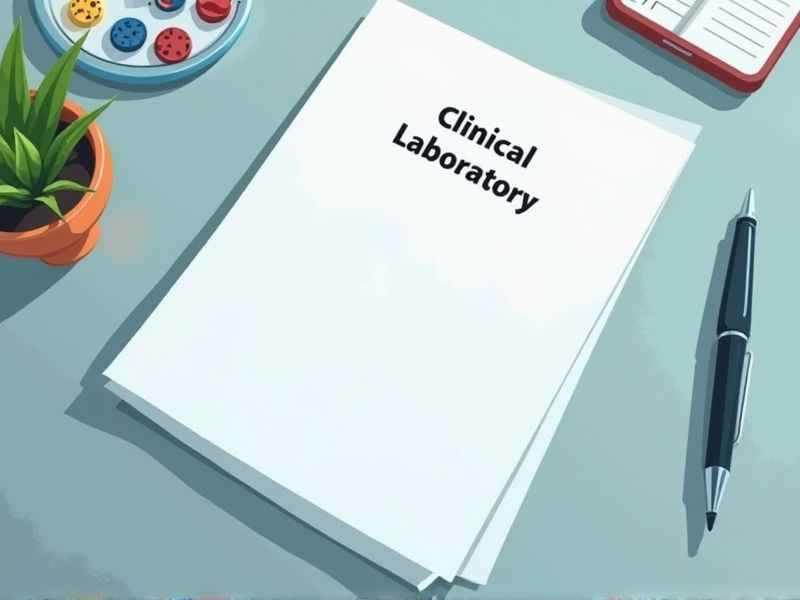
Clinical Laboratory Technicians play a critical role in patient care by conducting necessary tests that influence treatment decisions. Due to the precision required in testing and handling of sensitive biological samples, obtaining specific certifications ensures that technicians maintain high standards and adhere to safety protocols. Certifications validate a technician's expertise, offering assurance to employers and patients alike about their competence and reliability. Key certifications essential for a career as a Clinical Laboratory Technician include the following.
ASCP Board of Certification - Medical Laboratory Technician (MLT)
The ASCP Board of Certification for Medical Laboratory Technicians (MLT) establishes a standardized benchmark for assessing the competency and knowledge of Clinical Laboratory Technicians. This certification ensures that professionals possess the necessary skills and expertise to accurately perform various laboratory tests, contributing to patient care. Regulatory compliance often requires certification to maintain quality assurance and adhere to industry standards in medical laboratory settings. Employers tend to prefer or mandate certified individuals, which improves the credibility and trust in the healthcare services provided.
AMT Certified Medical Laboratory Technician (CMLT)
The increasing complexity and precision required in medical testing necessitate that Clinical Laboratory Technicians have formal certification like the AMT Certified Medical Laboratory Technician (CMLT) to ensure competency and accuracy in their work. Certification helps validate the technician's knowledge in handling advanced laboratory equipment and methodologies, reducing the risk of errors in test results. Employers often rely on certification as a benchmark for hiring qualified individuals who can contribute to better patient outcomes within healthcare settings. Enhanced training associated with certification prepares technicians to adhere to strict regulatory and safety standards, crucial in maintaining the credibility and reliability of laboratory findings.
AAB Medical Laboratory Technician Certification
AAB Medical Laboratory Technician Certification is needed for Clinical Laboratory Technicians because it verifies their competency and technical skills in performing essential lab procedures. The certification enhances credibility, ensuring employers that the technician meets industry standards. It also increases job opportunities and potential for career advancement by distinguishing certified technicians from non-certified ones. In certain jurisdictions, this certification is a requirement for legal practice, ensuring compliance with state regulations and healthcare guidelines.
NCA Laboratory Technician Certification
The NCA Laboratory Technician Certification enhances a Clinical Laboratory Technician's credibility, signaling proficiency and adherence to standard industry practices. Certification often leads to better job prospects as employers tend to prefer candidates with recognized credentials. Statistically, certified technicians can expect higher salaries compared to their uncertified counterparts. The certification process ensures technicians stay updated with the latest technological advancements and regulatory requirements.
CLIA Laboratory Certification
Clinical Laboratory Improvement Amendments (CLIA) certification is needed to ensure that clinical laboratory technicians adhere to standardized testing processes, which guarantees the accuracy and reliability of test results. CLIA establishes quality standards for all laboratory testing to improve patient safety and care. Without this certification, laboratories may produce inconsistent results, leading to potential misdiagnosis or improper treatment. CLIA oversight helps maintain public trust in laboratory testing by enforcing compliance with federal regulatory requirements.
CAP Accreditation Certification
CAP Accreditation Certification is necessary because it ensures laboratory quality standards that align with the latest scientific guidelines. It promotes accurate test results, which directly impacts patient diagnosis and care. Regular assessments under CAP guidelines contribute to continuous improvement in laboratory practices. Laboratories with CAP certification often gain increased trust from healthcare providers and patients, enhancing their reputation within the medical community.
CLSI Laboratory Quality Management Certification
The CLSI Laboratory Quality Management Certification ensures clinical laboratory technicians adhere to standardized practices, which enhances the precision and reliability of laboratory results. Compliance with these standards fosters a culture of continuous improvement and minimizes errors, contributing to patient safety. Certification validates a technician's commitment to quality management, making them more competitive and credible in the healthcare job market. A structured quality management system encourages efficient operations, reducing waste and optimizing resource use in laboratory settings.
OSHA Laboratory Safety Certification
The certification ensures that clinical laboratory technicians are trained to handle hazardous materials safely, minimizing the risk of chemical exposure and accidents. It promotes a standardized understanding of safety protocols, which helps maintain consistent safety practices across various laboratories. Laboratory safety certification aids in compliance with federal regulations, protecting both employees and employers from potential legal liabilities. Certified technicians are equipped to respond effectively to emergencies, reducing the potential impact on health and safety.
AABB Blood Banking Certification
AABB Blood Banking Certification ensures that Clinical Laboratory Technicians maintain high standards in transfusion medicine, directly impacting patient safety and treatment outcomes. Without this certification, inconsistencies in blood management practices could lead to increased risk of transfusion reactions or errors. The certification process enhances a technician's proficiency and confidence in handling blood products, which is critical in emergency and routine medical procedures. With AABB certification, laboratories gain credibility and reassurance, bolstering trust among healthcare providers and patients.
Laboratory Information Systems (LIS) Certification
Achieving Laboratory Information Systems (LIS) Certification enhances the technical proficiency of Clinical Laboratory Technicians, ensuring they are adept at navigating complex data management tasks. This certification validates a technician's ability to efficiently manage, process, and report laboratory data, crucial for maintaining accuracy and compliance. The certification fosters trust among healthcare providers by demonstrating the technician's capability in handling sensitive patient data securely. By equipping technicians with advanced knowledge, LIS Certification contributes directly to improving laboratory workflow efficiency and patient care outcomes.
Summary
By obtaining certifications, you enhance your skills and increase job prospects in the clinical laboratory field. Credentials often lead to higher earning potential and better job stability. Employers view certified technicians as more knowledgeable and reliable, thereby triggering increased trust and responsibility. Consequently, certified technicians frequently experience accelerated career advancement and diversified work opportunities.
